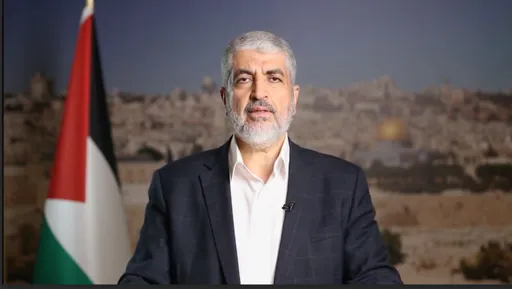As protests and calls for a boycott against France mounted throughout the Muslim world, French President Emmanuel Macron was forced to appear on Al Jazeera Arabic in a bid to quell the growing fallout.
In an exclusive sit-down interview, Macron sought to explain why tensions between France and the Muslim world have reached boiling point with potentially damaging consequences for French businesses.
There have been protests worldwide as well as widespread calls to boycott France over offensive cartoons depicting the Prophet Muhammed by the Charlie Hebdo magazine. While the Hebdo issue was the straw that broke the camel’s back, Macron’s controversial statements on ‘Islam in crisis’ and a French ‘Islamic separatism’ bill have earned him fierce criticism throughout the Muslim world.
Macron has been widely understood to back the offensive cartoons and his interview on Al Jazeera does not seem to have won over his critics. Some have warned Muslims not to “fall for Macron's PR push.”
If Muslims were expecting an apology from Macron, they didn’t hear it. What they got instead was the President understanding “sentiments being expressed” by Muslims in regards to a figure they hold highly.
In the lengthy and at times testy interview, Macron argued that the aim of his administration was to ensure that Muslim women are liberated from what he perceived are conservative constraints.
Yet not everyone agreed, with one analyst stating, after listening to the French president’s speech, that “Macron is not going after “Islamism.” A family of traditionalist Muslims will feel itself the target of this.”
Professor Arsalan Khan, an anthropologist who studies Islamic movements in Pakistan, argued that Macron’s interview implied that “gender equality is a defining feature of French culture and secularism, specifically, and Western civilisation more broadly, which he then juxtaposes against Islam and Muslims who, by implication, become harbingers of dangerous religious and gender values that are undermining French culture, secularism and civilisation.”
Khan, speaking to TRT World, went on to say that Macron “erases the fact that gender inequality is not uniquely Muslim and is a pervasive feature of French society.”
In France, the notion of extremism is very loosely defined and for many Muslims, it has become a catch-all term used by the French state which puts their daily Islamic practices under state scrutiny.
As part of its effort to tackle “extremism,” France has passed draconian laws banning Muslim girls from wearing the hijab to school, and more broadly, forbidding Muslim women from wearing the face veil in public.
Shortly after his attempted outreach to Muslims on Al Jazeera, Macron jumped on Twitter to proclaim simply “secularism has never killed anyone.” The statement was widely understood to be juxtaposed vis a vis Islam.
Shadi Hamid, a senior fellow at the US-based Brooking Institute, argued that it was not “helpful for the president of France to troll French Muslims.”
“The French government is increasingly stigmatising an entire group because of the actions of individual extremists. There should be no assumption of collective guilt. The actions of terrorists should not be used to delegitimise French Muslims. But that's what's happening,” added Hamid.
In reaction to the speech, a French activist from the Justice and Civil Liberties for All Committee, Yasser Louati, said that the president was out of touch with what is happening on the ground in France.
In the long term, it is difficult to gauge what impact, if any, Macron’s speech will have, but it may have been a lost opportunity for a genuine conversation to be had.
Professor Khan argues that for many Muslims in the West, Macron’s statements “are harmful because they stigmatise Islamic practices. This then reinforces state targeting, surveillance and regulation of Muslims as well as legitimises everyday forms of prejudice and racism. Moreover, it is a distraction because it presumes that radical militancy is a direct outgrowth from religious observance, which evidence shows, is not the case.”
Macron’s approach to French Muslims so far has been guided by the need to guard his flank against the far-right politician, Marie Le Pen, who is doing increasingly well in the polls as Macron’s ratings have plummeted.
His government, increasingly bereft of policies, needed to unite the country of all hues. Instead, it has opted for the lowest common denominator, stigmatising Muslims. In France, that might pay off.























